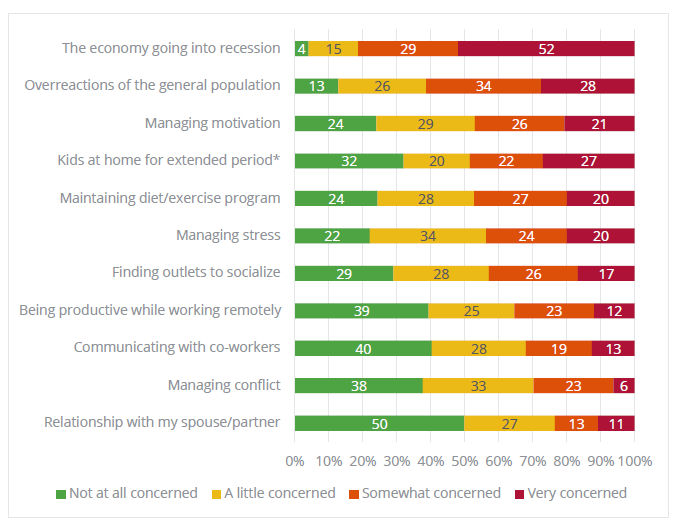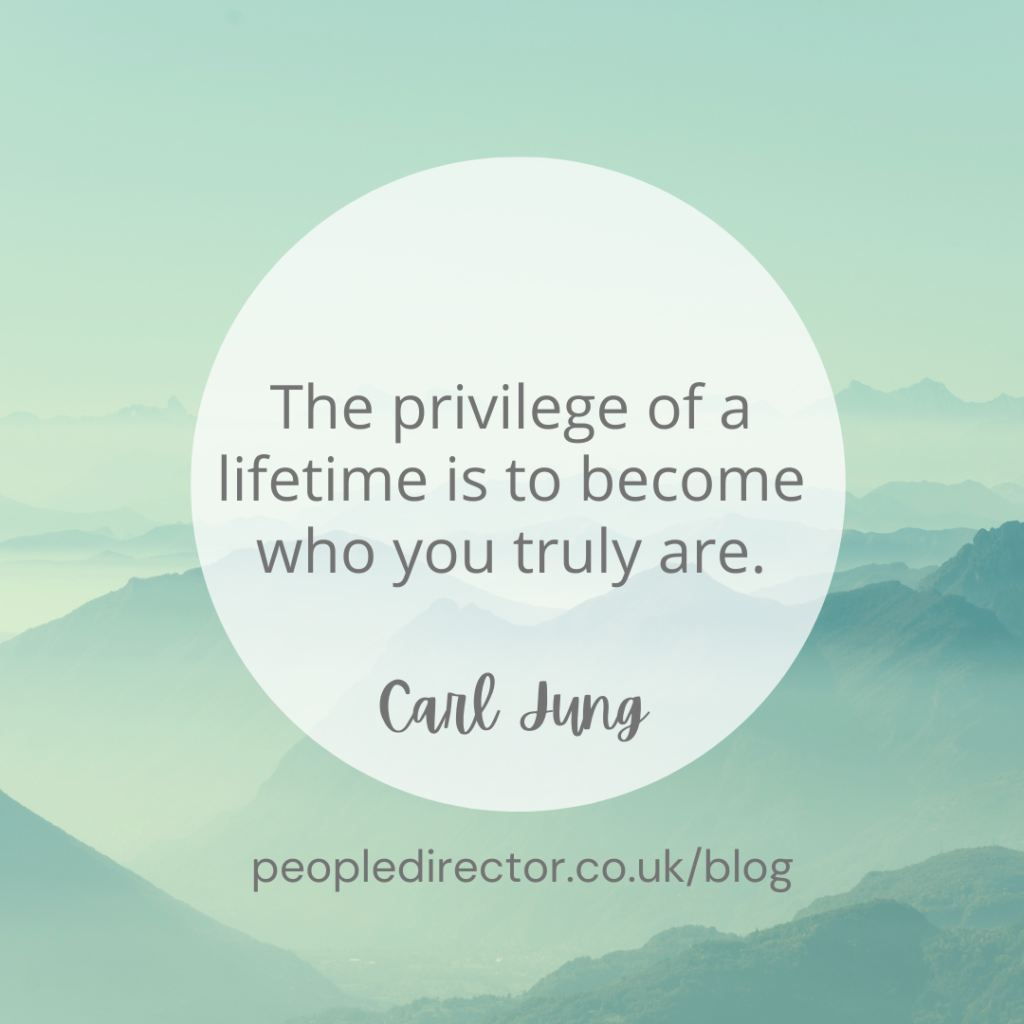
The COVID-19 pandemic has had a profound effect on people’s lives, both at home and at work. Many have lost their jobs, and those who remain may experience additional pressure, stress, or feelings of ‘survivor guilt’. More widely, many people are worried about the economy, or the health of their family and friends, or a myriad of other concerns. John Hackston from The Myers-Briggs Company writes in this article about the key findings from their recent research “The COVID-19 Crisis: Personality and Perception”.
As practitioners and researchers at The Myers-Briggs Company, we felt that it was important to understand how individuals’ personalities affected how they reacted to the pandemic, in order to develop guidelines to help them and their organisations to adapt.
We asked survey participants to choose words to describe their feelings about the COVID-19 crisis, for views about their job and about being a remote worker (or not), and for their level of concern regarding ten challenges that they might be facing. We also asked them for their personality type, as assessed by the MBTI® framework.
This looks at four aspects of personality preference, Extraversion/Introversion (where we get our energy from), Sensing/Intuition (what information we prefer), Thinking/Feeling (what process we use to make decisions) and Judging/Perceiving (whether we prefer living in a more structured or more open way).
The results of the survey were fascinating.
Negative – Positive Feelings
Negative words predominated, especially words around being anxious, worried, concerned, fearful or scared. Words around uncertainty, confusion, chaos and the unknown, around being frustrated, angry, annoyed, or irritated, around being stressed, overwhelmed, tired or exhausted, and around being sad, depressed, emotional or heartbroken were also common.
However, when asked specific questions about their working lives, many gave rather more positive answers. This was especially the case for remote workers but applied to non-remote workers too. This suggests that for many of those in work, wider expectations and worries about the pandemic may be more negative than their day to day lived experience.
The bigger picture: People were worried about the bigger picture and about how COVID was affecting others, and were somewhat more stressed than usual, but were generally positive about their jobs. At least for people in work, their day-to-day experience seemed less negative than might be expected from their wider concerns. However, those who did see their working lives in a more negative way also had more worries about the wider picture.

Family, friends and co-workers: Remote workers tended to see their situation more positively than non-remote workers. The latter group expressed more worries about their friends and family and their co-workers. As they were not able to isolate in way many remote workers could, this is not surprising.
Anger: There is some evidence that those who completed the survey more recently were more frustrated or angry than earlier respondents, and therefore that the degree of anger may be increasing over time.
Guilt: Women, remote workers, and those with a Feeling MBTI personality preference were significantly more likely than others to feel guilty that they still had a job when others had lost theirs. They had a higher level of ‘survivor guilt’. Amongst newly remote workers, levels of survivor guilt have been increasing over time.
Differences by Personality Type
Personality type had a significant impact on answers to the survey.
In the early days of lockdown, many predicted that Extraverts would have a difficult time working from home. This did not quite seem to be the case; both Extraverts and Introverts enjoyed some aspects of working at home. However, remote workers with an Extraversion preference did tend to have more negative views. Many missed having people around, saw life as being too quiet, worried that they were becoming too isolated, and were watching more TV or streaming services than before.
Individuals with a Sensing preference were significantly more concerned than those with an Intuitive preference about managing motivation, having the children at home for an extended period, and managing stress. Remote workers with an Intuitive preference were significantly more likely than those with a Sensing preference to say that they were enjoying the peace and quiet of working from home, and that they were more motivated than before, whereas many of those with a Sensing preference were finding it difficult to remain focused.
Respondents with a Feeling preference tended to express more negative views than those with a Thinking preference. They were more likely to use negative, emotive words to describe their feelings about the pandemic and they expressed significantly more concern about managing motivation, managing stress, being productive while working remotely, managing conflict, and about their relationship with their spouse or partner. They were also significantly less positive about working from home than those with a Thinking preference seeing themselves as more stressed, less appreciative of working from home, less motivated and engaged, and less positive about using virtual apps. They were more likely to feel guilty that they still had a job and to wish that they did not have to work from home, found it more difficult to concentrate and remain focused, and were more likely to worry that they were becoming too isolated.
Remote workers with a Judging preference were more likely than those with a Perceiving preference to say that they had settled into a routine, and while they did on average agree that they enjoyed having the flexibility to work when they wanted, they agreed less strongly with this than those with a Perceiving preference. Those with a Perceiving preference very much enjoyed having the flexibility to work when they wanted and, while many had settled into a routine, some were finding things too predictable and routine. Amongst non-remote workers, those with a Perceiving preference were more likely to say that they would have preferred to be able to work remotely.
The data suggests that those who are not able to work remotely, or who have chosen not to do so, may be having a more negative working experience than remote workers. Realistically, many organisations will be looking to have employees working from home for some time to come. Even after the pandemic has subsided and lockdowns and social distancing are no longer being enforced, remote working is likely to be attractive to organisations for financial reasons, and to many employees seeking to reduce commuting and increase time spent with family and friends.
The results of this research can help guide organisations as the features of working from home employees enjoy, those that they do not, and how people with different personality preferences may react to these in different ways.
Some further resources on personality and remote working are available online here. You can download the full research report from this link.

About John Hackston
John is Head of Thought Leadership at The Myers-Briggs Company, and is a Chartered Psychologist with over thirty years of experience in helping clients to use psychometric tests and questionnaires. He carries out research to bring personality assessments to life, helping practitioners and end users apply the insights they gain both inside and outside work.


If you need to improve business performance, call +44 (0) 7783 908571 and speak with our lead business and HR consultants. We have helped hundreds of organisations from 24 business sectors to change, improve and thrive.
